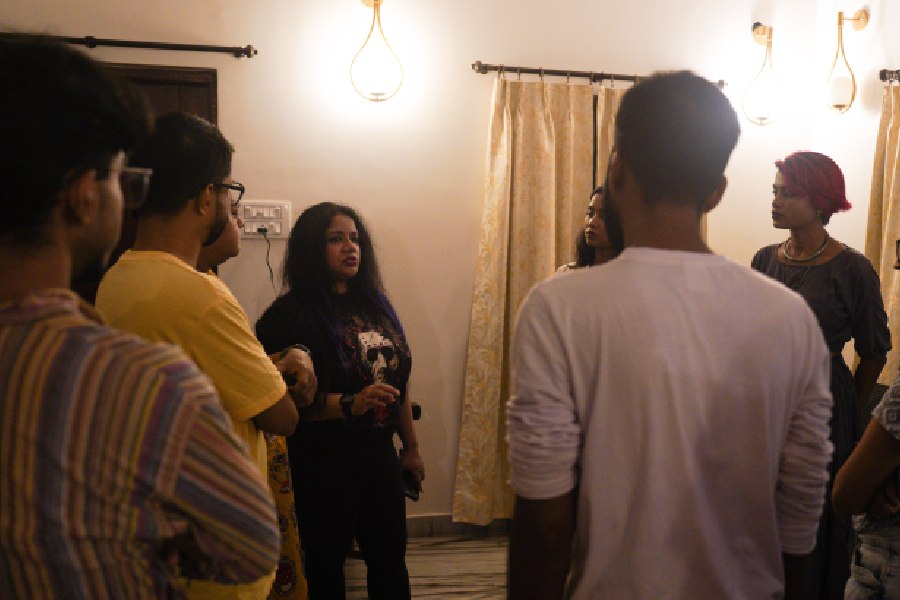A mural artist, a content creator, performers, songwriters and hip-hop artistes came together under one roof on a recent Saturday evening at a Kolkata resource centre. Their purpose? Craft art centred on raising sexual awareness.
In the wake of the horror at R.G. Kar Medical College and Hospital, gender-rights activists in Kolkata are conducting workshops to train men as responders for when survivors of sexual assault choose to come forward. Pranaadhika Sinha Devburman, an activist and chief trustee of the One Million Against Abuse Foundation, is one of the organisers of such workshops. Her ‘Men As Allies’ workshops are not only focussed on training men on identifying abuse, reporting it online and offline, and be better allies to survivors of sexual assault, but they also serve as a means of community-building and providing a safe space for male survivors to open about their trauma.
In one such session, city artists, women, male allies, queer individuals and folks from marginalised communities got together. They created art for sexual assault survivors, from the lens of male allies and male survivors.
“Art has the unique power to bridge gaps between people, especially when it comes to raising awareness about sensitive issues like sexual assault. While not everyone may engage with written content or traditional discussions on these topics, art — whether through music, visual expression, or performance — offers an accessible and emotional way to reach a broader audience,” said Rahul Chakraborty, who is a graffiti artist and the founder of Extreme Kolkata.
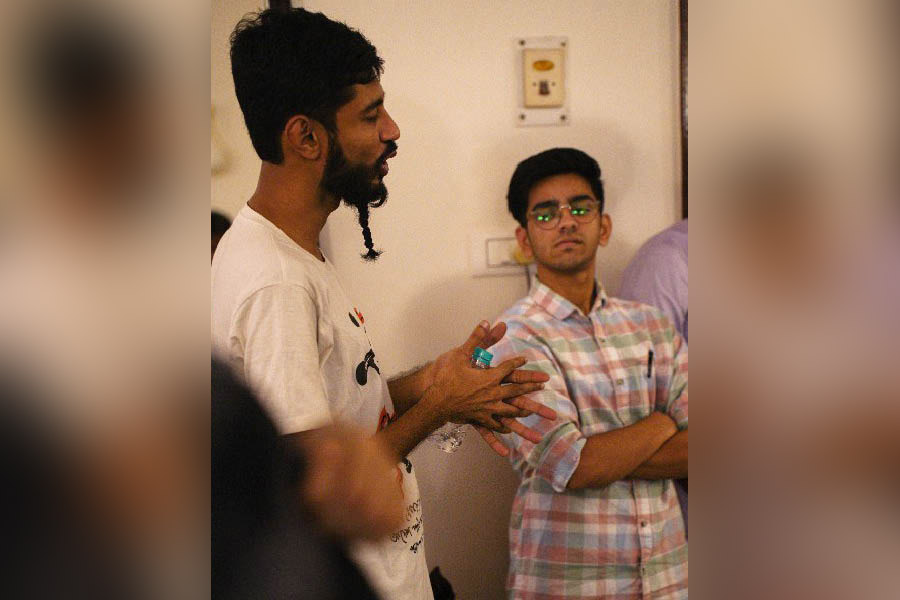
Rahul Chakraborty, a graffiti artist and the founder of Extreme Kolkata, speaks at an event
Change and challenge harmful societal norms
“Abuse has become normalised in society — with the portrayal and glorification of violence in films like Animal and Kabir Singh. It's high time men take responsibility for addressing the culture of abuse in society. This responsibility extends beyond individual awareness — it requires them to call out their friends on sexist remarks often casually passed around about women,” Chakraborty added.
The artist highlighted the lack of community and called for more empathy, urging men to educate themselves about abuse and learn how to be effective allies. He believes that artists, in particular, carry a significant responsibility to use their platforms to inspire change and challenge harmful societal norms.
Rounak Chakraborty, who also goes by the name Cizzy, is a rapper and co-creator of the ‘Men as Allies’ workshop. On being asked what inspired him to be an active part of the campaign, he said, “Pranadhika and I identified knowledge gaps, and discussed how to best incorporate a spirit of empathy, unlearning toxic patterns of thought/behaviour, and actively engaging in the process of building a community that respects boundaries and will no longer be an enabler of a patriarchal system.”
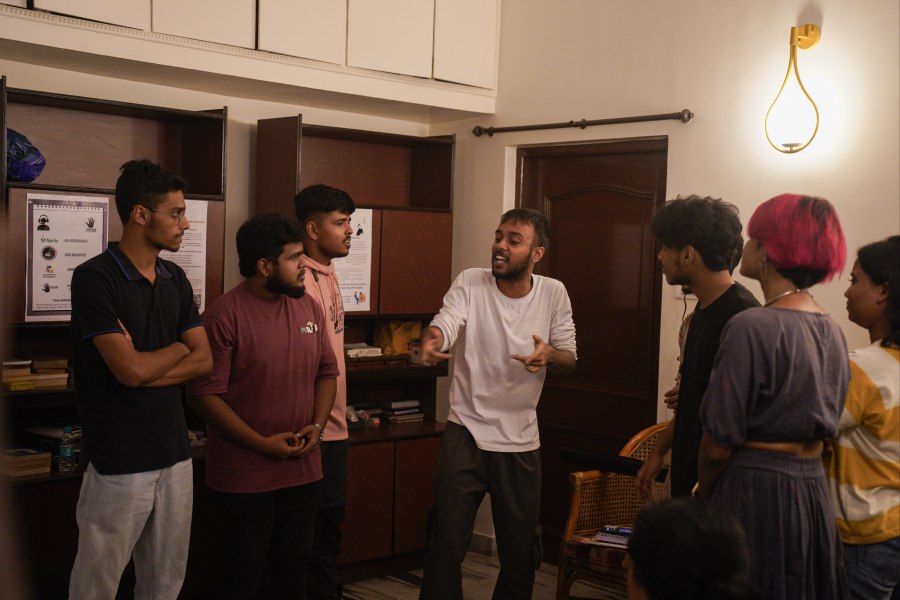
Cizzy (centre), a rapper and co-creator of the ‘Men as Allies’ workshop, gives a freestyle performance
“I generally try to avoid writing about abuse directly, unless it stems from a personal experience of mine or someone I know. Instead, I focus on the systematic and human errors which emphasise and empower those. My rhymes are very socio-political and they provoke thoughts in the listener's mind. That, coupled with experimental beats, has garnered attention from my audience. I try to stay optimistic and instead of preaching, I try to address the issues sarcastically or metaphorically — where I portray my listeners and myself as a part of the problem and we try to look for a solution together,” Cizzy said.
The system is the biggest challenge
Two decades ago, Pranaadhika, a determined 19-year-old activist, ignited a movement with a singular vision: to raise awareness about sexual assault and to fight for change. Armed with little more than passion and resolve, she laid the foundation for what would become a powerful platform for awareness and advocacy.
Fast forward to today, and this movement has blossomed into a vibrant, creative force. The recent content creator’s day organised by the One Million Against Abuse Foundation stands as a testament to this evolution, bringing together artists, musicians, and creators in a unified effort to use their talents for social change. This event reflects the growing chorus of voices joining in, each contributing to a larger narrative — a narrative that began with one young woman’s dream and has grown into a community of creative activism.
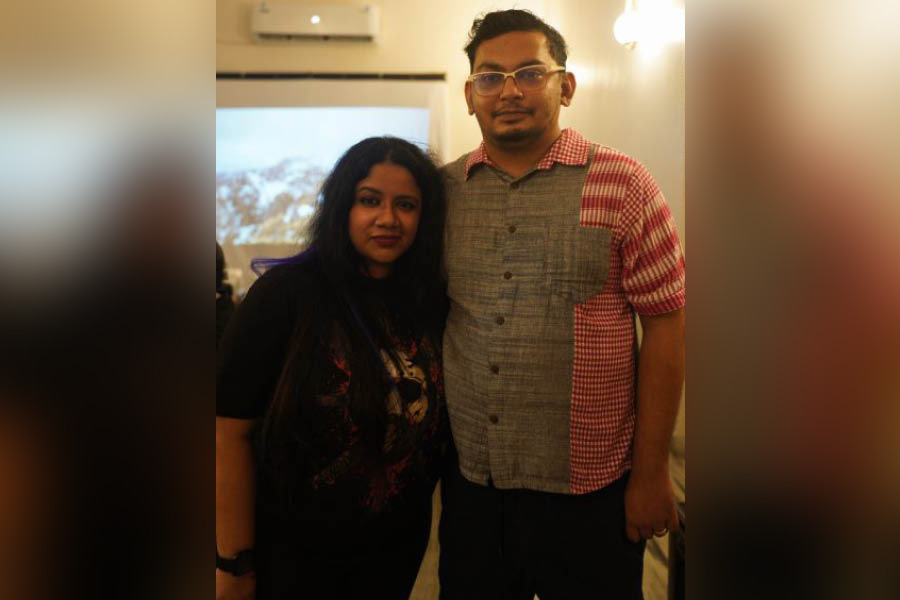
Devburman with Abhik Mukherjee — a survivor of sexual assault, and presently a mental health practitioner with Crystal Minds
As a survivor of childhood sexual abuse, Devburman’s campaign holds deep personal significance for her. “I have been working in the field of child/adult sexual assault awareness through the facilitation of age-appropriate, inclusive PSE (personal safety education) since I was 10 years old, so that would make this my 29th year in the field! Twenty years ago, however, my reason for embarking on this mission, was my lived experience with horrific sexual assault that I endured as a four-year-old. By the time I was 10, I had experienced it again and instinctively knew that something had to be done to empower young survivors. From that moment onwards, I learned-unlearned, drafted my own little CSA (child sexual abuse) awareness curriculum, turned my bedroom into an office and screening room, and pretty much grew the movement from there,” Devburman said.
With no resources and no mental health support by her side, Devburman took it upon herself to spread awareness about abuse and educate others about it. “I downloaded manuals from around the world (none from India) and trained myself on handling abuse disclosure, identifying signs of abuse, what to say and not to say to survivors, etc,” she said.
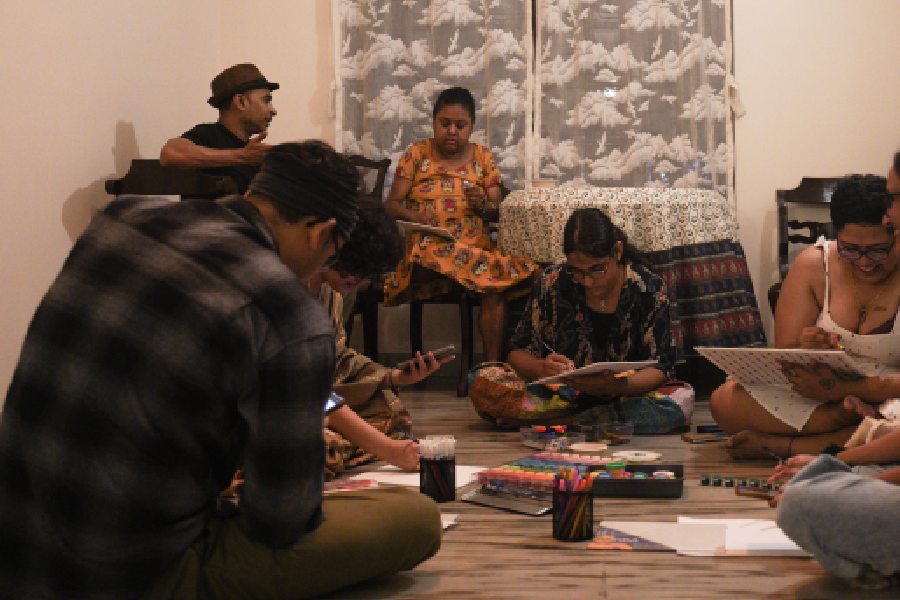
An art session in progress
The conversation around sexual abuse has evolved a lot over the years. The emergence of social media has played a huge role in promoting awareness. There is no dearth of information available in the media regarding abuse and related issues. Citizens have become more aware of various forms of abuse. “Sexual assault too, has unfortunately expanded,” Devburman said. She acknowledged that efforts are being made to understand how sexual abuse impacts differently-abled folk, queer folk and marginalised communities.
Anwesha Paul, an alumnus of the National Institute of Design and one of the oldest members of the One Million Against Abuse Foundation, opined that social media has been a game changer for activists. She said that it has helped them cater to a wider group of people.
Encouraging men to participate
However, Devburman and others have faced many challenges in encouraging men to participate in the workshops. Friends or ‘bros’ of men, who have histories of abusive behaviour appear a little hesitant about getting involved. “It is easy to point fingers when the abuser is a stranger, but when they are a loved one or teammate, empathy lies with the abuser, not the survivor,” she said. The onus lies with the men to challenge patriarchal norms and break the pattern of enabling behaviour.
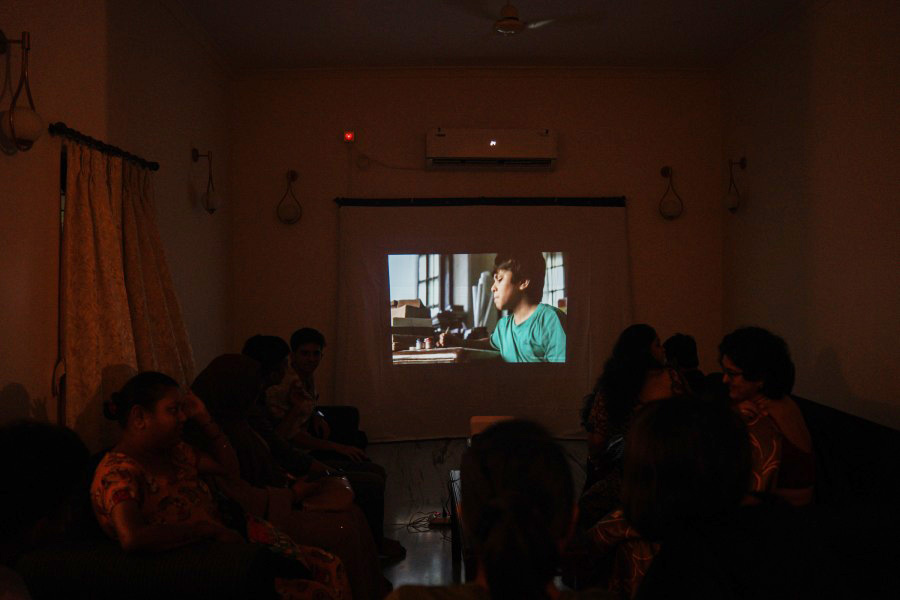
The film ‘5 O’Clock Accident’ by Ruchir Arun, which deals with a young boy’s harrowing experience with sexual abuse, is screened for participants
She stated that by International Men’s Day (November 19), which also coincides with the World Day for Prevention of Child Abuse, her organisation aims to have 100 male allies trained to better support abuse victims. “Having reached over 50% of our goal of 100 allies already, we hope to host more creative events as the allies enjoy participating in, and co-facilitating them the most,” Devburman stated.
The discourse on sexual assault remains a taboo subject in society, often met with discomfort or silence. Victim-blaming, cultural norms and stigma around it make it difficult for survivors to speak out. Sexual assault is not a ‘man vs woman’ issue. While women are disproportionately affected, sexual assault can happen to anyone, regardless of gender, and addressing it requires a collective approach.
“Men are not the enemy, and I would like to see them, and all of us as allies who coexist in peace and harmony, acknowledging the need to have empathy and self-awareness, and an understanding that it is the system and mindset of the people that must evolve for social justice to be a possibility,” Devburman signed off.
